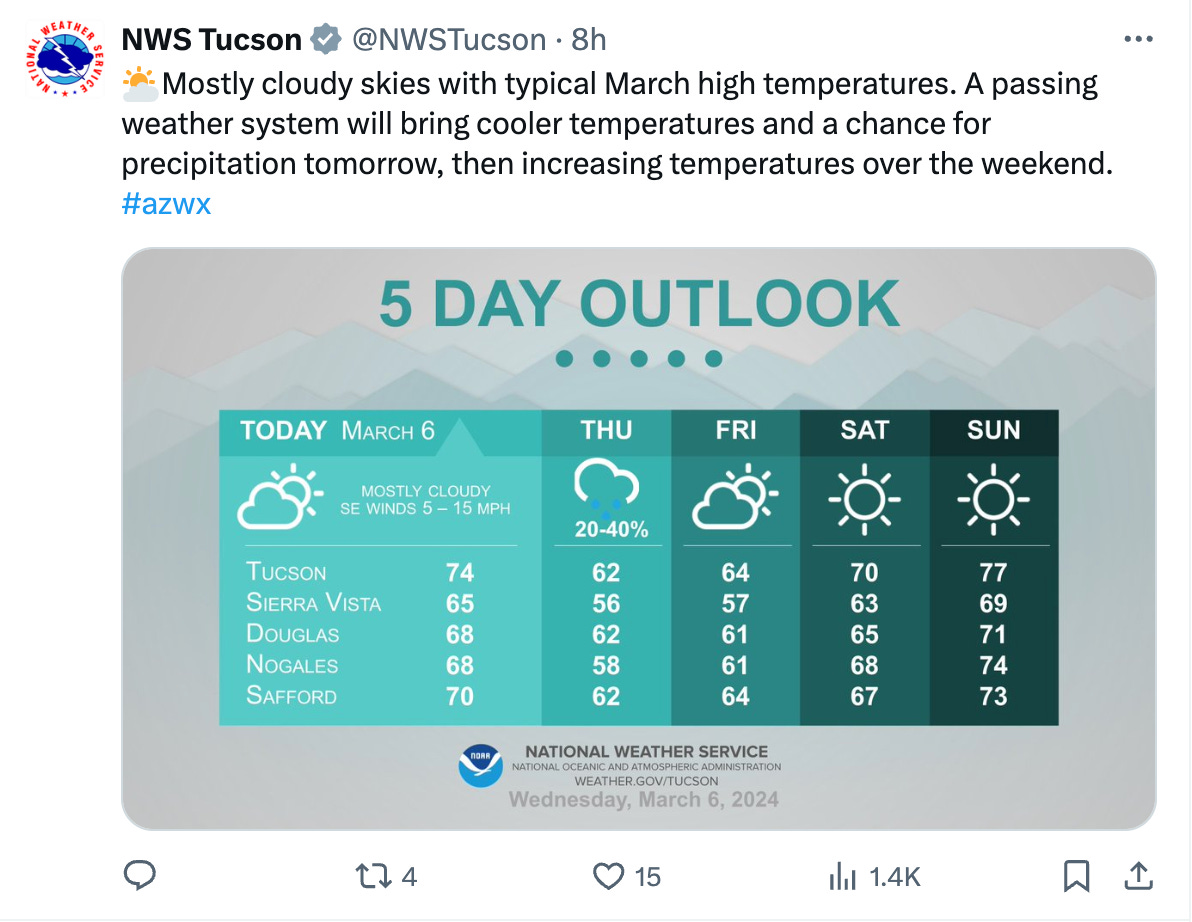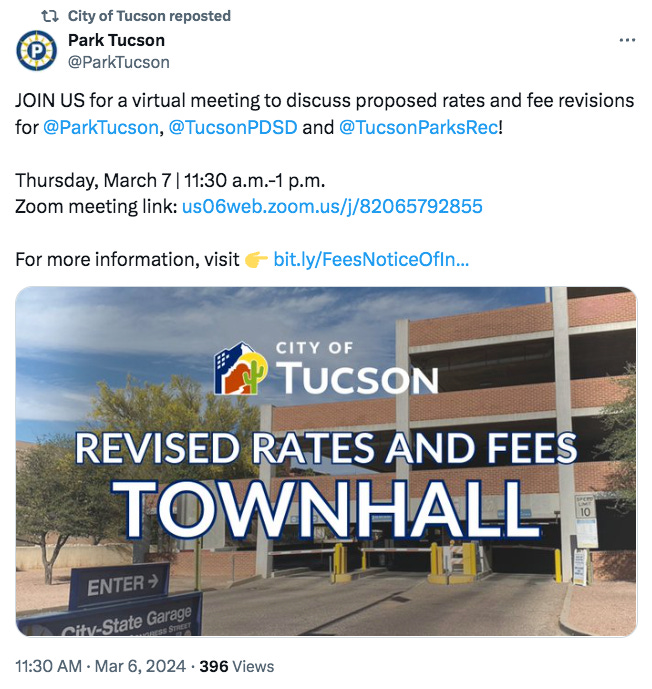The Daily Agenda: New county gun law, fare-free transit, and much more
This week's roundup of what your local officials decided ... AG looking into sheriff's department.
We’re doing briefs a little differently this week. We ran briefs about school boards on Monday. Today we’re recapping the big decisions your elected officials in Pima County and the City of Tucson made this week.
Pima County has a new ordinance aimed at “straw purchasers,” or people who get around gun laws by buying guns for people who are prohibited from owning them. Under the ordinance approved this week, if you lose track of a firearm you bought, you better report it to county officials. If not, you could be fined up to $1,000. County Supervisor Rex Scott said straw purchasing is a big problem in Pima County and the ordinance won’t be a problem for law-abiding citizens.
"There is no risk, no threat to the Second Amendment or to law-abiding citizens," Scott said. "It is predictable, but absolutely ridiculous, to assert otherwise."
The ordinance passed 4-1 at the Board of Supervisors meeting on Tuesday. Supervisor Steve Christy cast the lone "nay" vote, saying “it’s very obvious that it’s election time” and calling the ordinance a political tactic by the Democrats on the board to distract the public.
Scott said it was a "small step" toward dealing with the staggering toll of gun violence, but “we have to do what we can.” Supervisor Matt Heinz agreed, saying as a former legislator he's aware there will be little action taken on gun violence in the Republican-controlled Legislature.
The county is seeing some success with a program to keep people out of jail. Officials launched the Pima County Transition Center in August and the supervisors got their first update on Tuesday. It showed 90% of the people who went through the program stayed out of jail for at least 30 days, compared to a baseline of 73%, Doyle Morrison, the program manager, told the board. Instead of creating a whole new slate of services, the way it works is people recently released from jail can stop by the center, which is located just outside the jail. County workers, known as justice navigators, then connect them with existing services, such as treatment, housing, and employment. They also help them keep track of their court dates. Simple enough.
The supervisors signed off on a massive sports and entertainment complex that's been in the works since 2014. The Mosaic Quarter is going up near the Kino Sports Complex and backers said it would "transform" Pima County's reputation. There's a lot to this one. An iceplex, fieldhouse, stadium, hotels, restaurants. The list goes on. They expect thousands of kids who wouldn't ordinarily get a chance to play hockey, and an array of other activities, will get their turn at the new facility. County officials also anticipate hundreds of millions of dollars in revenue over the years through hosting tournaments and events. Knott Development is building the facility and they expect it to open in 2026.
Over at Tucson City Hall, the "first priority" of their plan for dealing with asylum seekers is getting them to the airport in Phoenix as quickly as possible. That's where many asylum seekers who come through Tucson are trying to get to anyway, City Manager Mike Ortega wrote in a memo. City officials also are making arrangements with nonprofits, asking Congress for funding, and generally looking at every imaginable option. The problem they’re facing is federal funding is going to end March 31. Those funds have been critical over the past five years as local officials and nonprofits handled more than 400,000 asylum seekers who were released by the Border Patrol. Right now, city officials are worried about what’s happening in San Diego, where the Border Patrol has been dropping off about 900 asylum seekers at transit centers every day for the past week or so. Casa Alitas, which has been the hub of local efforts for years, said they can continue their work in Tucson with private funds, but they won't be able to handle nearly as many as they could with those federal dollars. They'll focus on families and people with medical needs. The city and Pima County will have to figure something out for everybody else.
"Doing nothing may cost more than dedicating some services and some dollars at the end of the day," Savannah Martinez, the city's emergency manager, told the city council.
The city council isn’t anywhere close to reinstating fares for public transit. The issue came up again on Tuesday after Ortega wrote a memo saying they should consider going back to collecting fares. Several council members worried that even discussing it would give the impression to the public that they were moving in that direction. As Council Member Lane Santa Cruz pointed out, fares only cover about 10% of the costs, anyway, so the council is trying to come up with about $2 million. They're looking at taxes on hotels and rental cars, while also pursuing state lottery funds that were discontinued during the financial crisis more than a decade ago. They are still at an impasse with local school boards and the University of Arizona about kicking in some money, with Ortega saying "I really don't have any hope" that an agreement will be reached. In a bit of encouraging news, ridership on the streetcar jumped from about 900,000 annually before the pandemic to 1.6 million last year.
There's no need to fear artificial intelligence, at least not at City Hall. In fact, Tucson and many other cities have been using AI for years, just not in the way that's making headlines now, Councilwoman Nikki Lee said. Still, she wants the city to put in place some good governance practices as they use AI more in the coming years. Nothing was decided at the meeting, but some possible uses of AI include routing traffic better, faster responses to the public, and finding ways to conserve more water. The trick will be making sure to protect personal privacy and other ethical concerns as they do it, she said.
"We're taking a slow, intentional approach to how we do this," Lee said.
Send your letters to the editor to Curt at curt@tucsonagenda.com. If you want to watch your elected officials in action, the meetings of the Tucson City Council and the Pima County Board of Supervisors are on their YouTube channels.
Power struggle: The Arizona Luminaria’s Carolina Cuellar published an explainer piece about shared governance and how it works at the University of Arizona and beyond. Shared governance is the collaboration in decision making between high-level university leaders, faculty, staff and students. A Republican-sponsored bill proposes stripping language in the current statutes to weaken the governing power of faculty representatives in Arizona’s public universities.
Accountability, please: Gov. Katie Hobbs made several requests of the UA and Arizona Board of Regents in a Wednesday meeting, including taking steps to ensure inclusivity in decision making and protecting longstanding employees, working-class staffers and in-state workers, according to a news release from her office. She also asked that they seek the support of external experts to improve financial processes and procedures; provide monthly updates to her office; and resolve the issues with the University of Arizona Global Campus and the U.S. Department of Education. She specifically requested that leaders ensure the new advisory council includes elected leadership of staff, faculty and student groups and makes no attempts to silence current groups.
Bus to the future: The City of Tucson is developing the first segment of its Bus Rapid Transit project that will eventually connect the Tohono Tadai Transit Center and Tucson Mall to downtown Tucson’s Ronstadt Transit Center, the Daily Wildcat’s Danielle Hartshorn reports. Bus Rapid Transit is a high-capacity bus service that aims to improve travel speed, reliability and passenger capacity. The idea is to make Tucson transportation sustainable and connect the different parts of the city.
Water woes: Naco Sanitary District board members are concerned about the area’s sole aquifer, KGUN’s Alexis Ramanjulu writes. The Naco-Bisbee aquifer provides water for Naco, Arizona; Naco, Sonora and Bisbee. The four wastewater lagoons hold 86,000 gallons of effluent water which is enough for human consumption, but not to supply other water needs. Groundwater in the area is under threat from a sulfate plume that’s moving south of the Warren District towards the well that Bisbee uses for its water. The sulfate contamination is from Bisbee’s previously operational mines.
More water news: The Bureau of Reclamation has introduced new water conservation agreements to save more Colorado River water through 2026, in an effort to prevent its reservoirs from falling to critically low levels, Arizona Public Media’s Katya Mendoza reports. The bureau is looking to conserve 3 million acre-feet of water through 2026 with the new plan allowing for reducing releases from Lake Powell if the reservoir is projected below 3,500 feet over the next 12 months –– 61 feet below its current level.
Digging deeper: An investigator with the Arizona Attorney General’s Office has been interviewing people in the Pima County Sheriff’s Department in connection with the handling of an alleged sexual assault of a deputy by her sergeant, KVOA’s Lupita Murillo reports. Supervisor Rex Scott told Murillo that he and other board members were interviewed about their investigation into the department. Sheriff Chris Nanos says he plans to conduct an internal investigation after the criminal investigation is over.
70: The number of responses to our reader survey we received yesterday. That’s a great start! Please take a minute to fill it out. It’s just 10 questions, mostly multiple-choice. It’s a big help to us as we try to get to know our readers better.











While I applaud any local action to reduce “straw purchase” in our community as a means to reduce the number of firearms going into the hands of prohibited possessors, I continue to wonder why local law enforcement officials don’t enforce ARS 13-3102 A 5- which makes it illegal to sell or transfer a firearm to a prohibited possessor. Enforcement of that statute would, in my opinion, be a more direct way of addressing the “straw purchaser” problem.
Thank you for bringing us news we may not want to hear but need to know.